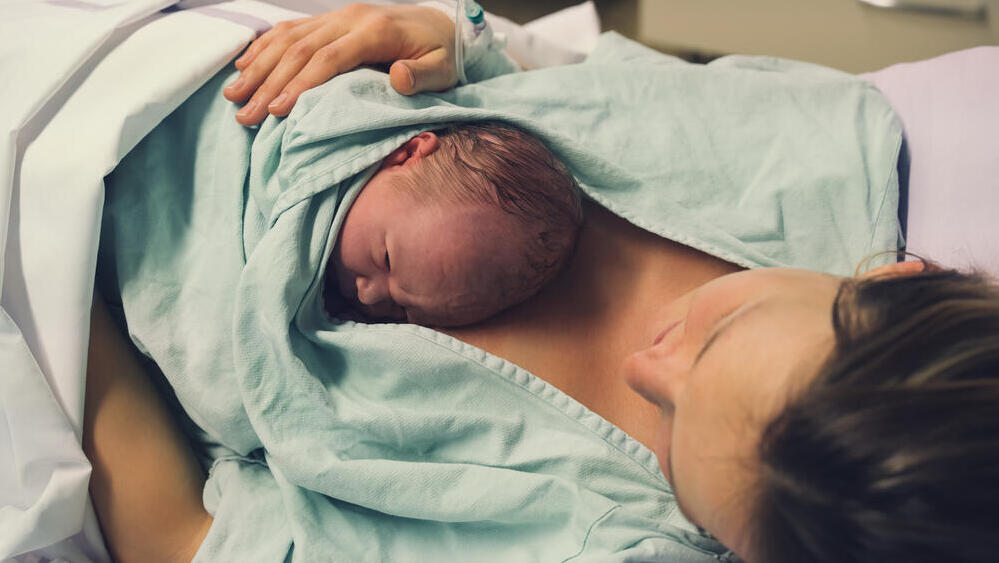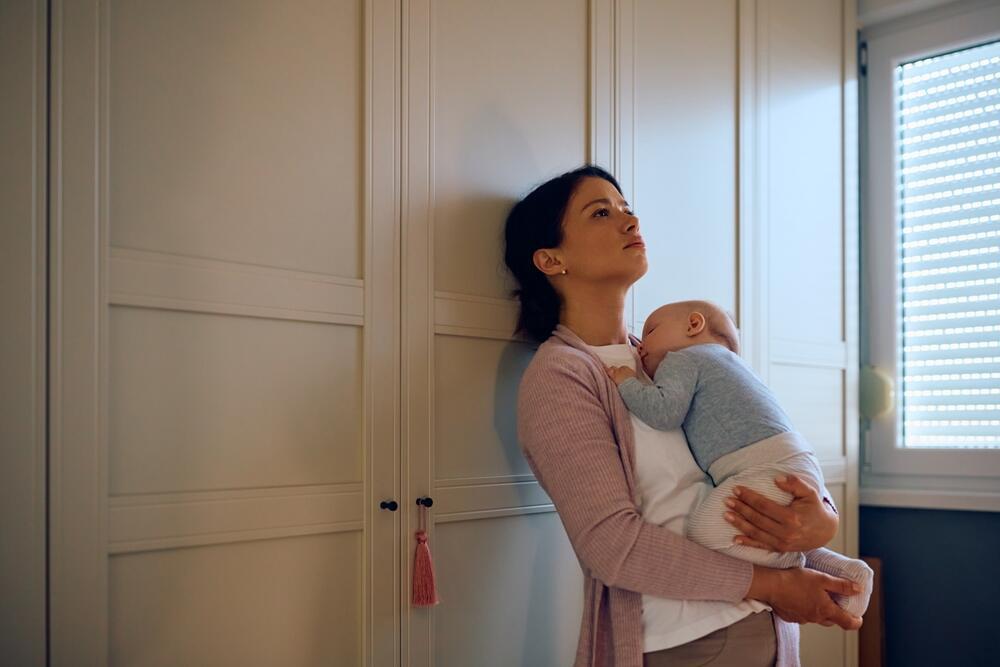Getting your Trinity Audio player ready...
The risk of postpartum depression and anxiety doubled for mothers who give birth during wartime, an Israeli study revealed on Tuesday. Conducted at Soroka Medical Center, the research examined the link between a mother's exposure to terrorism and war and its effects on her mental health after childbirth, including depression, anxiety, and the mother-infant bond.
The study included over 500 postpartum women, both during routine times and emergencies. From October to November 2023, 230 women were interviewed at the start of the war. The control group consisted of 272 women who gave birth at Soroka during the previous peaceful period, from March to May 2020—the last time they had data from routine times.
"When the war began, we had a gut feeling that our postpartum women were in distress," described Professor Eyal Sheiner, head of the Obstetrics and Gynecology Division. "We already had validated questionnaires, including the Edinburgh Postnatal Depression Scale, which every woman undergoes at well-baby clinics. We decided to administer it earlier, during the postpartum hospitalization, so we could intervene and help if needed." Additionally, questionnaires assessing anxiety levels and the mother-infant bond were also given.
The findings confirmed Professor Sheiner’s gut feeling. The Edinburgh questionnaire indicated that 26.6% of women met the threshold for postpartum depression during wartime, compared to 12.4% before the war. A similar trend was observed for anxiety—34.3% of women reported feeling anxious during wartime, compared to 17% in the control group. However, contrary to expectations, the war did not significantly disrupt the mother-infant bond, as per a survey examining parameters of rejection, anger, and neglect.
"Having a postpartum depression survey at six weeks is good, but during wartime, it’s probably not good enough," said Professor Sheiner. "Thanks to the study, we involved social workers, and more postpartum women received support. If we hadn’t conducted the early survey, we wouldn’t have reached them and could have missed them."
The study won first prize at the annual meeting of the National Association of Obstetrics and Gynecology. It was also accepted for presentation at the SMFM’s central conference on maternal-fetal medicine in Rome. The award was given to the research team, which included Dr. Hadar Klaper, Professor Gali Priante, and Professor Eyal Sheiner.
"Mental illness in the early postpartum period is known to have significant consequences for the infant, the mother, and the entire family, as well as economic and social implications for the entire population," explained Dr. Klaper. Professor Sheiner added, "Stress from exposure to terrorism and war is directly linked to an individual's mental state and can lead to long-term psychiatric consequences."





